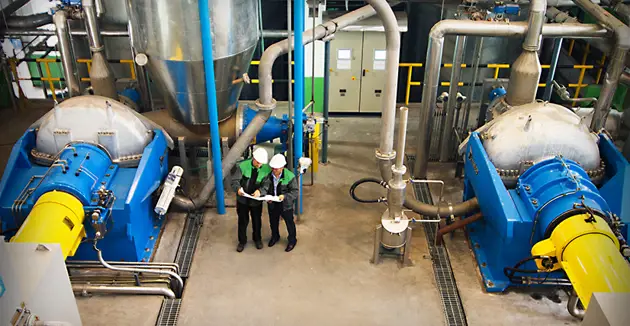Mechanical pulping solutions

At Valmet, we offer mechanical pulping solutions that make you more profitable and sustainable. We provide tailored solutions for softwood and hardwood, including process design, automation and service.
Lifecycle services for your mechanical pulping line

On this image
-
1 Design for success from day one
-
2 Start strong, stay secure
-
3 Optimize for reliability and results
-
4 Advance through smart maintenance
-
5 Upgrade to stay ahead

Design for success from day one
Plan your new installation with operability and maintainability in mind,ensuring safe and efficient project delivery, long-termperformance, ease of serviceand optimized lifecycle costs.
Turn your plan into action with
Start strong, stay secure
Achieve fast, smooth start-up and secure operation with expert support that gets you up and running with confidence.
Get up and running confidently with
Optimize for reliability and results
Keep your process running at its best with proactive support and proven technologies that drive consistent performance.
Keep your operations optimized through
Process and production optimization
Process parts
Performance agreements
Advance through smart maintenance
Achieve cost-efficient maintenance by transforming routine service into a strategic advantage, leveraging smart digital tools, streamlined workflows, and strong OEM partnerships to boost process efficiency and extend asset life
Optimize your maintenance strategy with
Field service
Maintenance development and outsourcing servies
Workshop and roll services
Process parts
Spare parts
Upgrade to stay ahead
Embrace growth and cutting-edge technologies that enhance your capabilities and keep you competitive in a changing market.
Stay ahead with these innovation-driven services
News
- Nov 18, 2025Finsa installs Valmet Steam Separator C for energy savings
- Sep 24, 2025Successful Start-Up of BCTMP line 1 in Phase 2 of Liansheng Zhangzhou Project
- Sep 1, 2025Stora Enso Oulu mill celebrates inauguration - project supported by Valmet’s technology
- Aug 8, 2025BCTMP line 2 in Phase 2 of Liansheng Zhangzhou Project Successfully Starts Up
- Aug 4, 2025Liansheng Pulp & Paper reaches record high daily BCTMP production
- Mar 28, 2025Ningbo Asia Pulp & Paper sets records on BCTMP line and PM 2
- Dec 11, 2024Do you know how to keep your wash press in perfect shape throughout its entire lifecycle?
- Dec 5, 2024Reaching new heights in efficiency and stability
- Dec 5, 2024Integrating lines to unleash flexibility
- Sep 16, 2024Pulping and biorefinery piloting from lab tests to industrial-scale production

Interested in mechanical pulping? Let's connect!
Whether you're exploring new technologies or improving existing lines, our experts are ready to connect. Share your needs and we'll help you bring your performance forward.
Contact us











